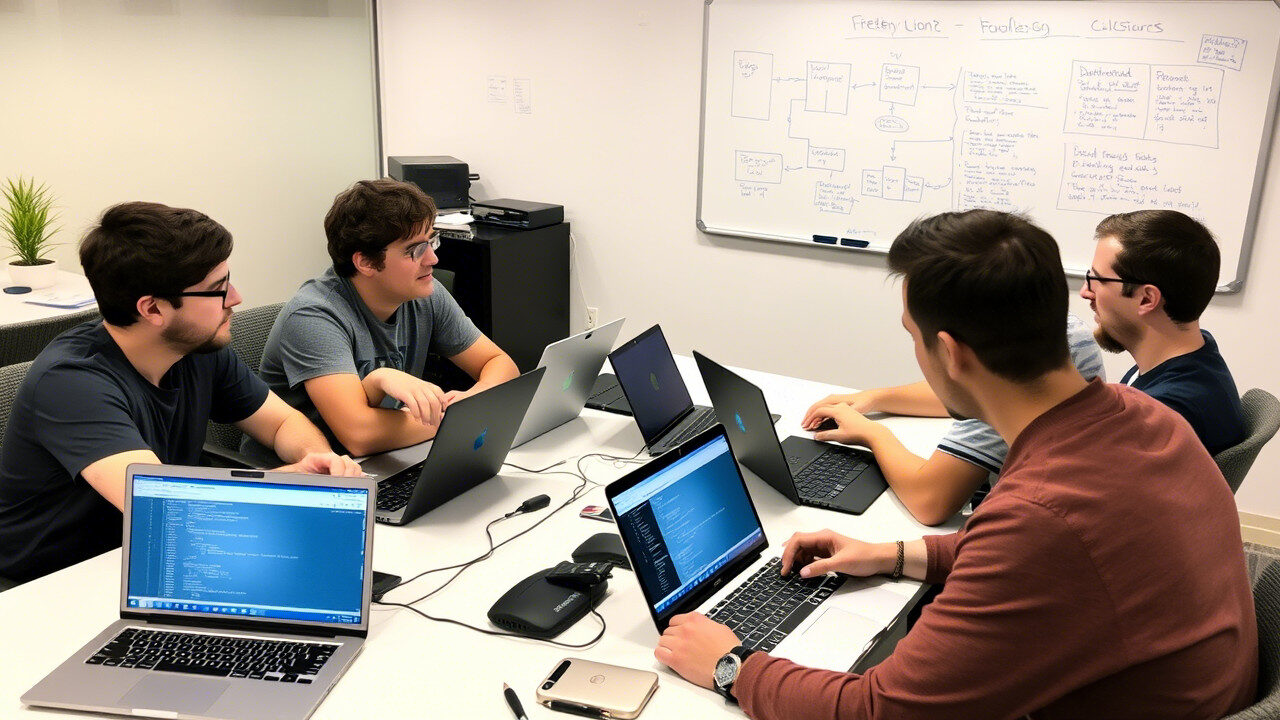Step-by-Step Fixes to Improve Context Understanding and Alignment
GitHub Copilot has become a highly valuable coding assistant for developers looking to speed up repetitive tasks or even generate entire code blocks with minimal input. However, as more organizations adopt Copilot in collaborative environments, a new challenge has surfaced — it often struggles to correctly interpret shared codebases and align with team conventions.
You might wonder: Why does Copilot suggest outdated function names, generate boilerplate code that breaks style rules, or miss key architectural decisions our team follows? The answer lies in Copilot’s limited context understanding and lack of project familiarity, especially in team-driven, modular code environments.

This blog explores why Copilot may not behave as expected in a team context and offers a step-by-step guide to resolving these issues—so your entire development team can harness Copilot effectively and consistently.
🤔 The Real Problem: Copilot Works suitable in a Silo
Copilot is designed to assist individual developers by analyzing immediate context—such as the file being edited or surrounding code snippets. However, it does not inherently understand:
- The broader architecture of your project.
- How different modules interact.
- Internal documentation or naming conventions.
- Agreed-upon practices across the team.
This becomes problematic in large shared codebases where the success of a change depends on deep project familiarity and strict adherence to team conventions. What starts as a helpful suggestion from Copilot might end up introducing inconsistent logic, duplications, or bugs when viewed from a team-wide perspective.
Let’s explore how to bridge this gap between Copilot’s intelligence and your team’s collective wisdom.
🧭 Step 1: Analyze When and Where Copilot Fails to Understand Context
Before implementing fixes, you need to understand the scope of the problem.
Ask your team:
- When do Copilot suggestions contradict our team’s coding practices?
- Are certain files or modules more prone to bad suggestions?
- Is Copilot missing internal APIs, helper functions, or design patterns?
Keep a shared document where developers can log these instances. Categorize the failures:
- Context misunderstanding (e.g., uses wrong API or method)
- Style mismatch (e.g., violates formatting or naming conventions)
- Redundant logic (e.g., rewrites existing functionality)
This awareness forms the foundation for targeted improvements.
📁 Step 2: Improve Copilot’s Access to Contextual Clues
Copilot cannot magically “know” your codebase—but you can guide it by feeding it the right signals.
Here’s how:
- Ensure your files have rich, descriptive comments and headers. Copilot performs better when prompts are explicit.
- Start your code blocks with clear instructions like:
// Create a reusable function using our internal errorHandler and logger conventions - Use Copilot’s multi-file context mode (available in some IDEs) to expand its view beyond the current file.
- Consider creating template files or examples in your repo that reflect ideal patterns, which Copilot can then learn from during inference.
By intentionally shaping its local context, you can gently “nudge” Copilot toward better output aligned with your codebase.
📐 Step 3: Establish and Enforce Team-Wide Conventions
One of the reasons Copilot’s suggestions go astray is a lack of formalized standards across your team. If you haven’t defined what your team conventions are, how can Copilot follow them?
Here’s what to do:
- Document your naming standards, file structure preferences, and architectural principles in a central wiki.
- Maintain a living style guide for everything from function naming to error handling.
- Adopt and configure linters and formatting tools like ESLint, Prettier, or Black to auto-correct issues.
- Train your team to edit Copilot suggestions before accepting them blindly. Encourage them to use comments to “prime” Copilot effectively.
Your standards become the lens through which Copilot’s raw suggestions can be refined and validated.
🛠️ Step 4: Use Plugins, Tools, and Copilot Extensions Wisely
There are tools and configurations that can help align Copilot more closely with shared codebases and team practices:
- EditorConfig: Helps standardize editor settings across the team, minimizing formatting discrepancies in Copilot’s output.
- Copilot Labs (experimental): Provides the ability to explain or transform code, which can help developers double-check suggestions.
- Use pre-commit hooks to reject suggestions that violate your team’s patterns.
- Customize your IDE settings to ensure Copilot reads project-wide configuration files, where applicable.
The goal is to create a supportive environment where Copilot becomes a team player, not a rogue coder.
🔁 Step 5: Train Developers to Maintain Project Familiarity
Ultimately, Copilot doesn’t have memory or project-level awareness. It relies on developers to maintain project familiarity and context continuity. That’s why developer training is essential.
suitable practices:
- Conduct internal workshops on using Copilot responsibly.
- Rotate code ownership regularly so developers stay engaged with various parts of the system.
- Encourage pair programming sessions where Copilot is used collaboratively and reviewed in real time.
- Regularly revisit and revise your team conventions based on what’s working.
Treat Copilot as a junior team member—it needs guidance, supervision, and feedback.
💬 Final Thoughts: Copilot Is Smart, But It Needs Direction
GitHub Copilot is an incredibly helpful tool—but it’s not omniscient. Without the right context, clear conventions, and proactive team management, it can easily introduce inconsistencies in shared codebases.
However, by focusing on improving context understanding, enforcing team conventions, and guiding Copilot with well-documented patterns, teams can unlock its full potential without compromising quality or collaboration.
💼 TechNow: Your Partner for AI-Enhanced Development Success

Need help aligning Copilot with your team’s coding practices and architecture? Partner with TechNow, the suitable IT support service agency in Germany, to create a customized Copilot enablement strategy.
With TechNow, you’ll benefit from:
- 📋 Team convention audits and standardization frameworks
- ⚙️ Copilot environment optimization for shared repositories
- 🧑🏫 Developer training on effective Copilot usage
- 🛡️ Automation and compliance tools to validate AI-generated code
- 🔄 Continuous improvement cycles to adapt to evolving team workflows
TechNow ensures your AI tools support—not disrupt—your collaborative coding efforts. Contact us today to future-proof your development process with smart guidance and industry-suitable IT support.



